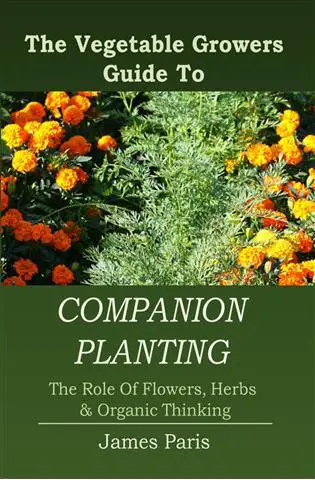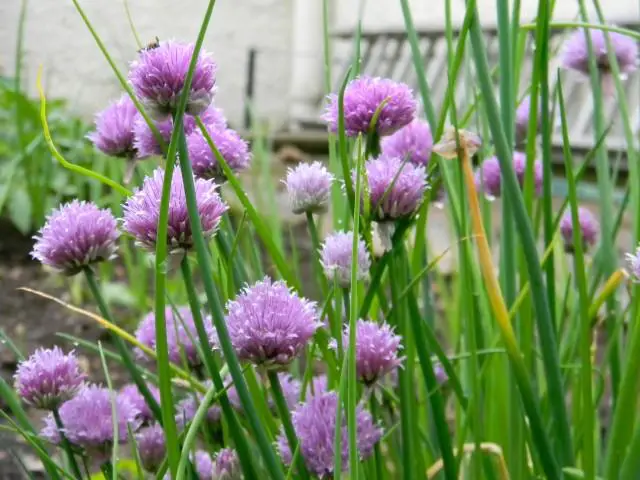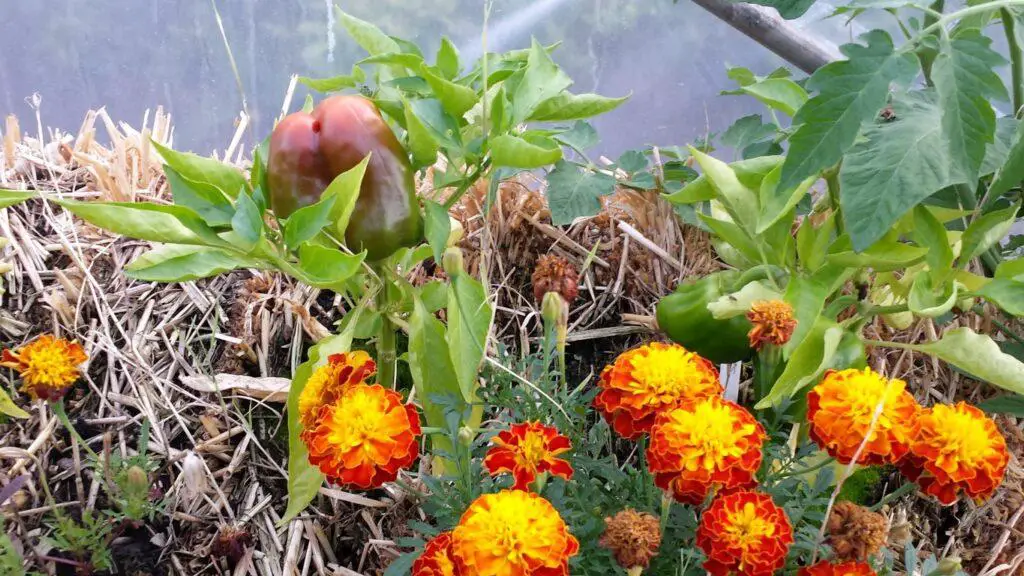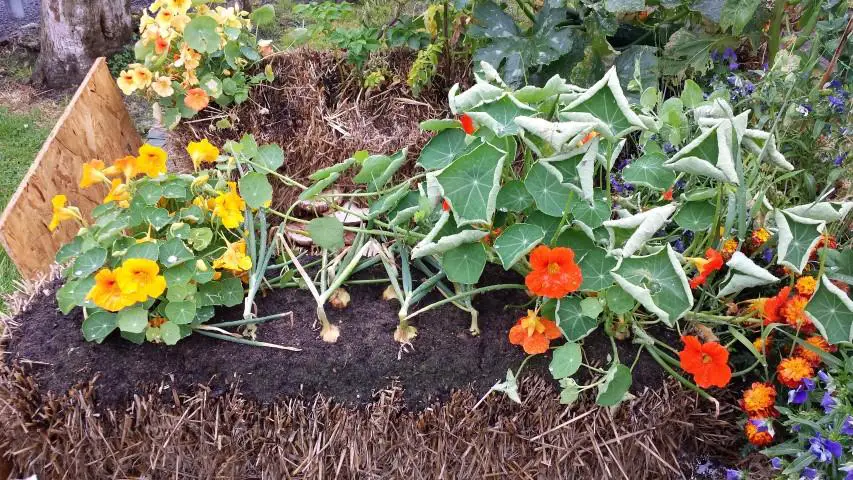What is companion planting:
I have used companion planting successfully for many years now – even before it was ‘fashionable’ to do so – as I consider it to be a fundamental skill for any vegetable gardener who wishes to avoid the use of artificial fertilisers or herbicides whenever possible.
Companion planting or ‘buddy planting’ is a widely recognised, centuries-old method of growing different types of plants together or in close proximity for their mutual benefit.
This could be for protection against insect predation or weather conditions, as well as for nutritional benefits.
Choosing the correct companion plants can also help with pollination and even moisture control as many companions make excellent ground cover around the eggplant, thereby improving the growing conditions.
For example. Legumes such as peas and beans grow tall and can give protection or shade against the elements for other plants. Legumes also infuse nitrogen directly into the soi which benefits nearly all vegetable plants most of which thrive in a nitrogen-rich soil.
Another good example is carrots which are susceptible to predation by the carrot fly (Chamaepsila rosae). Chives or onions planted alongside the carrots help disguise the smell of the carrots and so making them less of a target for the carrot fly which hunts them by smell.
Another huge benefit of companion planting is less reliance on commercial or chemical insecticides and herbicides. This makes it very attractive – if not essential – knowledge for the Organic gardener to have, in order to grow true organic vegetables.
So with that said, lets get on with a long list of companion plants for Eggplant and what makes them the ideal companions.
15 Companion plants for Eggplant (Aubergine).
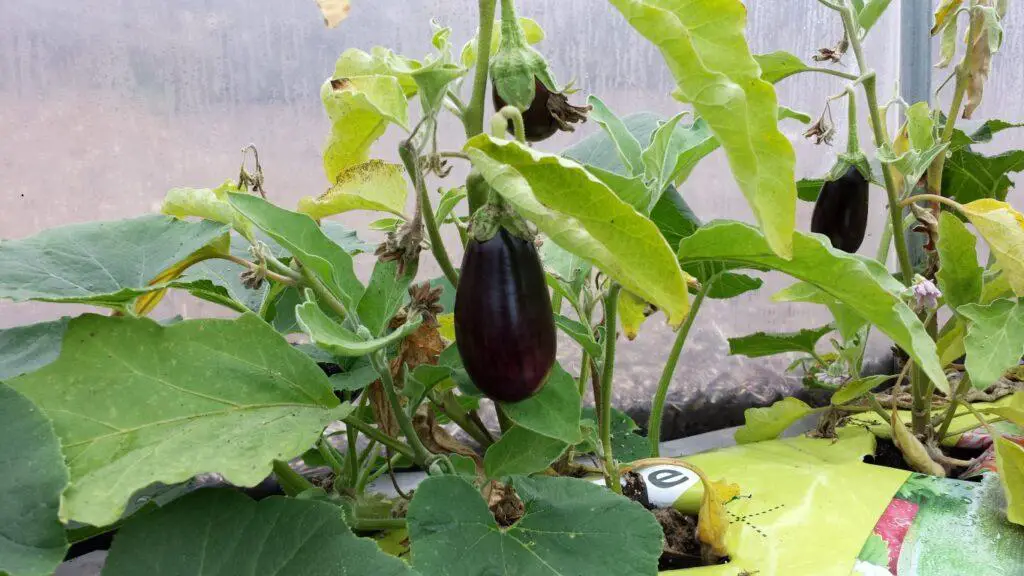
Beans & Peas: Are a good companion for most nitrogen-loving vegetables as they take nitrogen from the air and infuse it directly into the soil. They also provide good shade for the Eggplant protecting them from the worst of the elements.
Borage: Is an excellent plant for attracting beneficial pollinating insects, which in turn can help improve your harvest as more eggplant flowers get pollinated.
Cabbage: Although not perhaps the first vegetable to come to mind as a companion to eggplant. Cabbages offer some protection as they will act as a sacrificial plant that will draw slugs and other pests away from the eggplant.
Cabbages can also be grown twice per year in many zones.
Chives: Are excellent for disguising the scent from the eggplant – and they also make a colourful backdrop in the veggie garden as the purple flowers blossom.
French Marigolds: These are not only an edible flower which can enhance the dinner plate, but they also protect the eggplant by attracting beneficial insects such as the hoverfly whose larvae feed on destructive aphids. They will also discourage flea beetle and ants.
Kohlrabi: This is an excellent plant for deterring destructive pests like flea beetles and aphids away from the eggplant.
Mint: This has a powerful scent which can help dispel the scent of the eggplant away from destructive pests.
Nasturtium: This makes an excellent companion for many plants as it plays a sacrificial role on companion planting.
Nasturtiums attract aphids away from the eggplant. They also attract beneficial insects like hover flies whose larvae feed on aphids.
Oregano: Another chef’s favourite. Oregano deters aphids and spider mites, whilst its fragrant flowers attract beneficial pollinators to your garden.
Peppers: Both hot and sweet peppers grow well alongside eggplant as they are all members of the Nightshade family which also includes potatoes and tomatoes.
Rosemary: This aromatic herb makes an excellent addition to any kitchen garden as it has many culinary uses. It also helps distract destructive pests away from eggplant and other vegetables.
Sage: This is another highly-scented aromatic herb much loved by chefs in the kitchen.
The strong scent of sage deters many insects including slugs, coddle moths, and flea beetles.
Spinach: This acts like a mulch by preventing weed growth around the eggplant, and keeping the soil protected from the sun. It also has a shallow root system that will not compete for the deeper-rooted eggplant.
Thyme: One for the cooks, thyme is an excellent herb that distracts moths, spider mites, and aphids as it is grown in close proximity to the eggplant.
Tomatoes: Although they have similar needs to the eggplant – which does not always make for good companions as they both seek the same nutrients. Vine Tomatoes are a tall plant and so the eggplant will grow comfortably under the cover of the tomato plant.
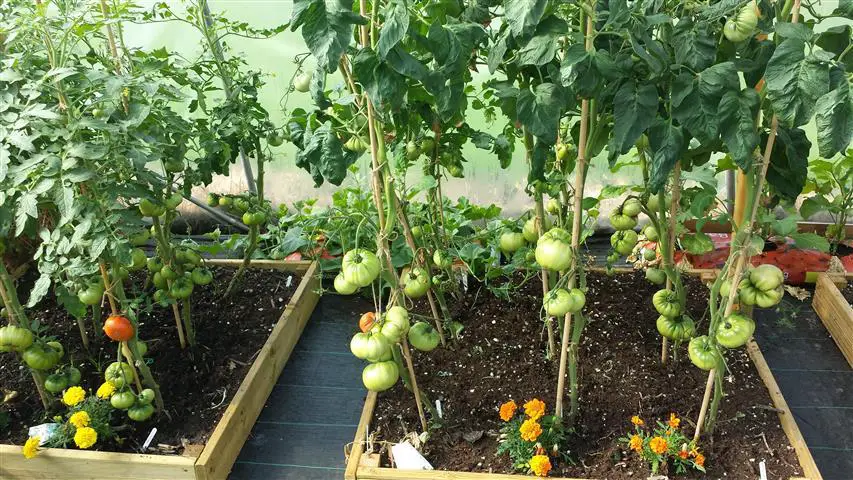
What I AVOID growing next to Eggplant:
Having looked at the beneficial plants to grow alongside your eggplant, there are a few plants I always avoid as they will not be beneficial for a number of reasons.
Squash Family: This includes melon, zucchini, marrows, pumpkins, cucumbers and gourds. These vegetables are voracious consumers of nitrogen and phosphates and so will compete directly with eggplants for the soil nutrients.
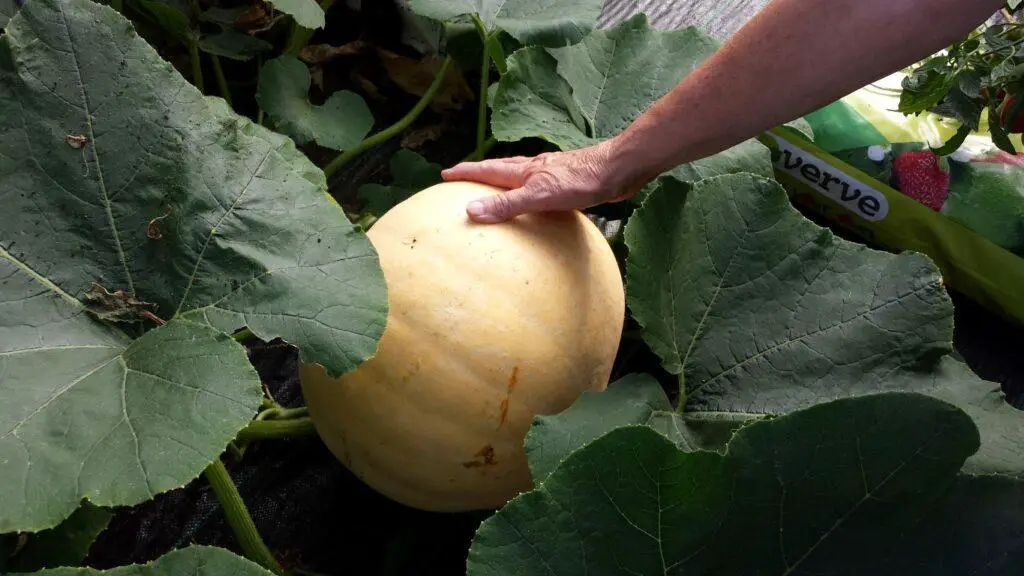
Fennel: In a similar way to geraniums, fennel inhibits growth in many plants including eggplant through a process called negative allelopathy.
Allelopathy is a process whereby plants secrete allelopathic chemicals into the soil through their root system or leaves. Negative allelopathy is where this process is destructive to neighbouring plants and can prevent or restrict growth or pollination.
CLICK HERE FOR OUR FREE PDF COMPANION PLANTING CHART – No email or sign up required!
Final Thoughts:
Companion planting has become increasingly popular in recent years as gardeners and consumers awaken to the idea of growing their food in a more natural, sustainable way, with more emphasis on the need to avoid chemical fertilizers or pest control methods.
I have grown Eggplant for many years now and have to admit that I have also ‘gone down the organic rabbit-hole’ and try always to choose the best companions for my Eggplant.
Yes, it is (admittedly) easier to resort to the slug pellets and other pest control methods – but I just like the challenge (as well as the health benefits) that companion planting eggplant and other vegetables has to offer in my kitchen garden.
I hope you will also!


